ETH News
All stories by Peter Rüegg, Corporate Communications
Were large soda lakes the cradle of life?
News

Life needs sufficient phosphorus. However, the element is scarce, not only today but also at the time of the origin of life. So where was there sufficient phosphorus four billion years ago for life to emerge? A team of origin-of-life researchers has an answer.
Origin of Life: How microbes laid the foundation for complex cells
News

Who were our earliest ancestors? The answer could lie in a special group of single-celled organisms with a cytoskeleton similar to that of complex organisms, such as animals and plants. ETH researchers made these findings in a new study.
The pupil as a window to the sleeping brain
News

For the first time, researchers have been able to observe how the pupils react during sleep over a period of several hours. A look under the eyelids showed them that more happens in the brain during sleep than was previously assumed.
A new switch for the cell therapies of the future
News

ETH researchers have developed a new gene switch that can be activated using a commercially available nitroglycerine patch applied to the skin. One day, researchers want to use switches of this kind to trigger cell therapies for various metabolic diseases.
Dissolving clusters of cancer cells to prevent metastases
- Press release
- Homehero

Successful test in breast cancer patients: the active agent digoxin, a cardiac medication, dissolves clusters of circulating breast cancer cells in the blood, thus reducing the risk of metastases formation.
Sunken worlds under the Pacific?
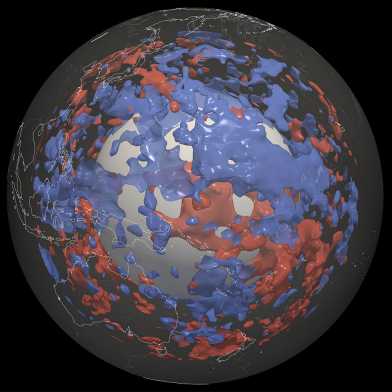
Geophysicists at ETH Zurich are using models of the lower mantle to identify areas where earthquake waves behave differently than previously assumed. This indicates the presence of zones of rocks that are colder, or have a different composition, than the surrounding rocks. This finding challenges our current understanding of the Earth's plate tectonics – and presents the researchers with a major mystery.
Launch of space systems degree programme
- News
- Homehero
- Globe magazine
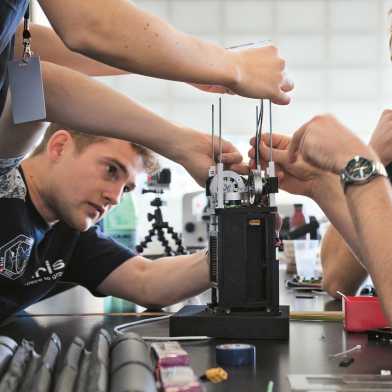
Few courses of study at ETH Zurich have attracted quite as much attention as the new Master in Space Systems. Teachers and students strapped in for the programme’s launch this autumn.
“We needed to know how far and how fast the event could travel”
News

Brienz has just been evacuated for the second time. The decision is based, among other things, on thousands of simulations that ETH professor Jordan Aaron has produced using a computer model he developed. In an interview with ETH News, he explains why this model was used.
CRISPR-Cas technology: balancing efficiency and safety
News

ETH Zurich researchers have uncovered a serious side effect of using the CRISPR-Cas gene scissors. A molecule designed to make the process more efficient destroys parts of the genome.
“We should take a more relaxed approach to sleep”
News

Sleep problems have become a widespread issue. In a new popular science book and in an interview with ETH News, ETH sleep researcher Caroline Lustenberger describes the do’s (and don’ts) for when you can’t get to sleep.
Catching prey with grappling hooks and cannons
News
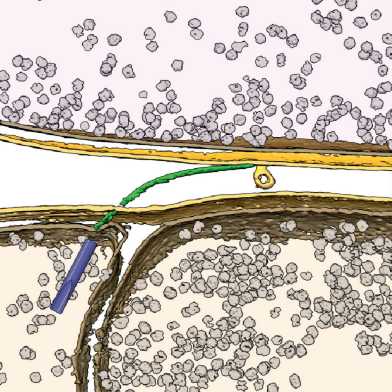
Researchers at ETH Zurich have analysed down to the smallest detail the unusual arsenal of weapons that a predatory marine bacterium has at its disposal. Perhaps one day these weapons could also be put to use in medicine.
Protein interactions: who is partying with whom and who is ruining the party?
News
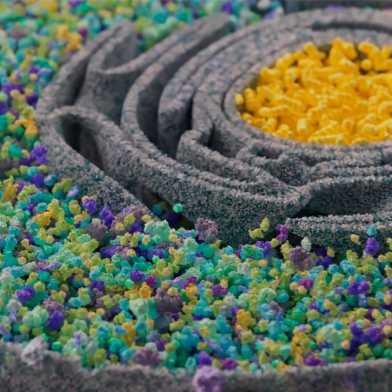
Using a new method, researchers at ETH Zurich can measure alterations in the social network of proteins in cells. This work lays the foundation for the development of new drugs to treat diseases such as cancer and Alzheimer’s.
A stiff material that stops vibrations and noise
News

Materials researchers have created a new composite material that combines two incompatible properties: stiff yet with a high damping capacity.
How a bacterium becomes a permanent resident in a fungus
- News
- Homehero
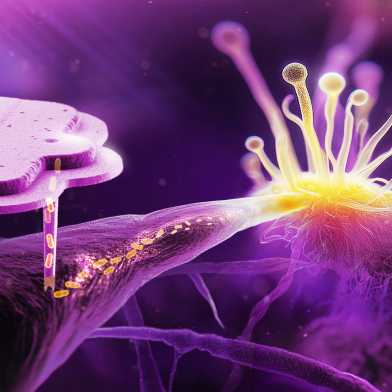
An organism as a tenant in another - in biology, this often works quite well. ETH researchers have now shed light on how such a partnership of a cell in a cell can establish.
Antidepressant shows promise for treating brain tumours

Researchers at ETH Zurich have used a drug screening platform they developed to show that an antidepressant, currently on the market, kills tumour cells in the dreaded glioblastoma – at least in the cell-culture dish.
How researchers turn bacteria into cellulose-producing mini-factories
News
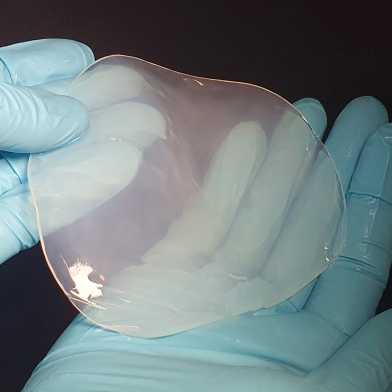
ETH researchers have modified certain bacteria with UV light so that they produce more cellulose. The basis for this is a new approach with which the researchers generate thousands of bacterial variants and select those that have developed into the most productive.
Cells with an ear for music release insulin
News
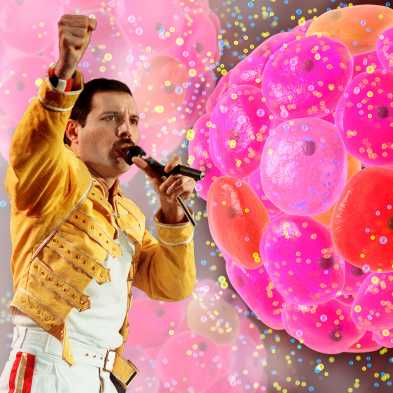
"We will rock you": ETH Zurich researchers are developing a gene switch that triggers insulin release in designer cells by playing certain rock and pop songs.